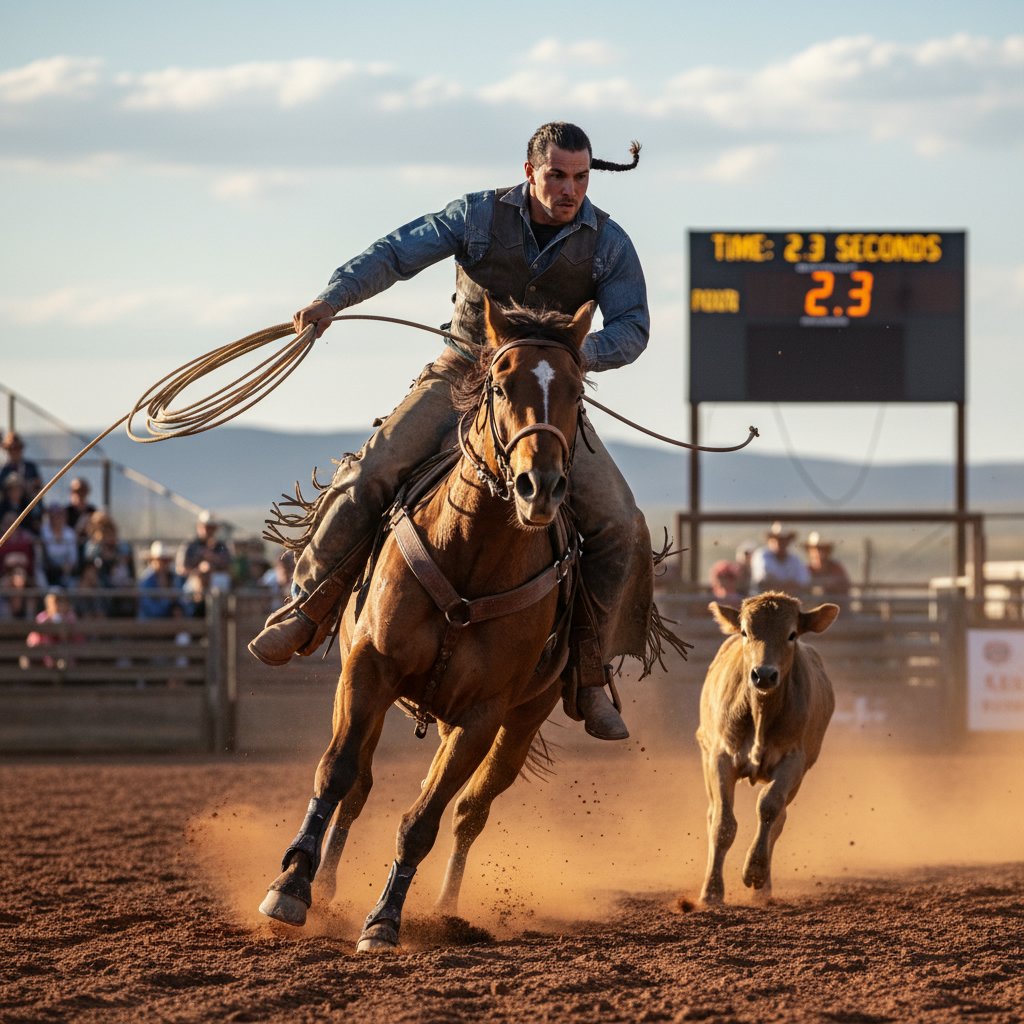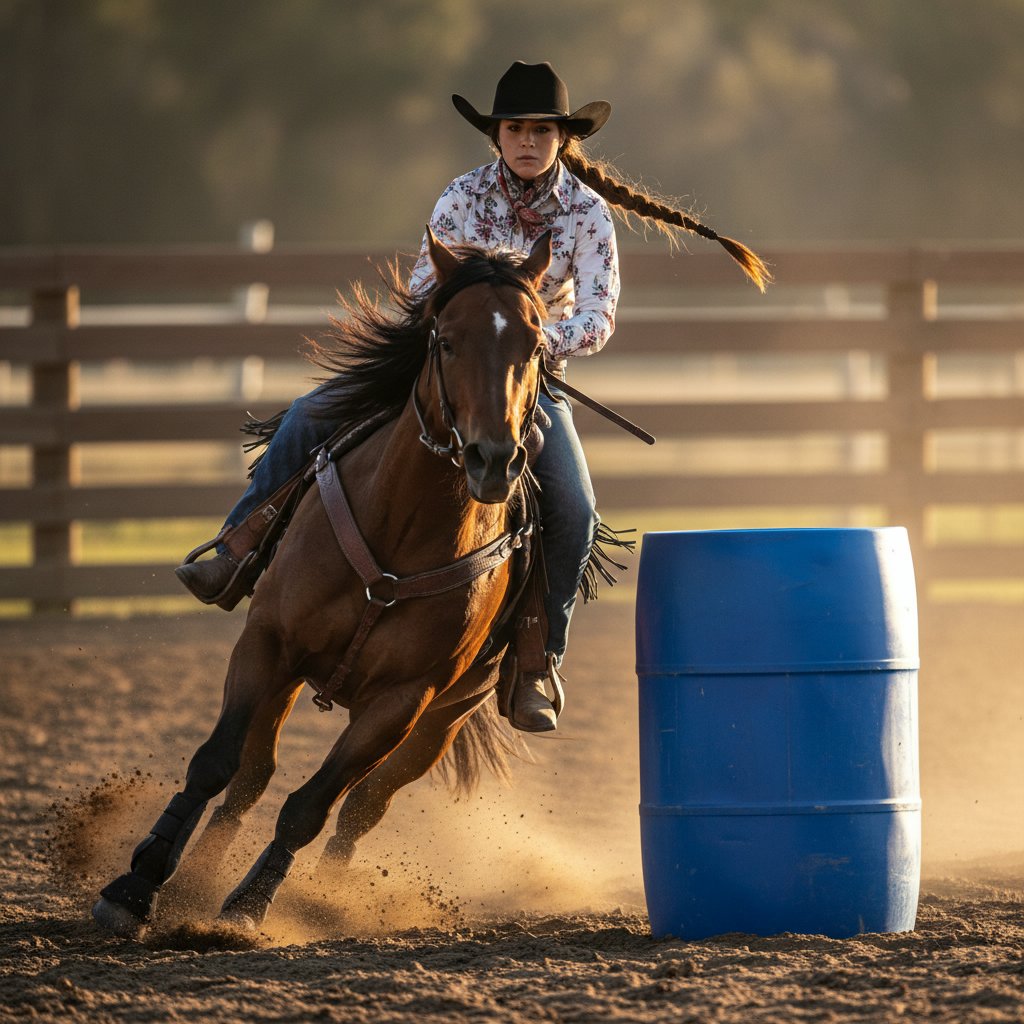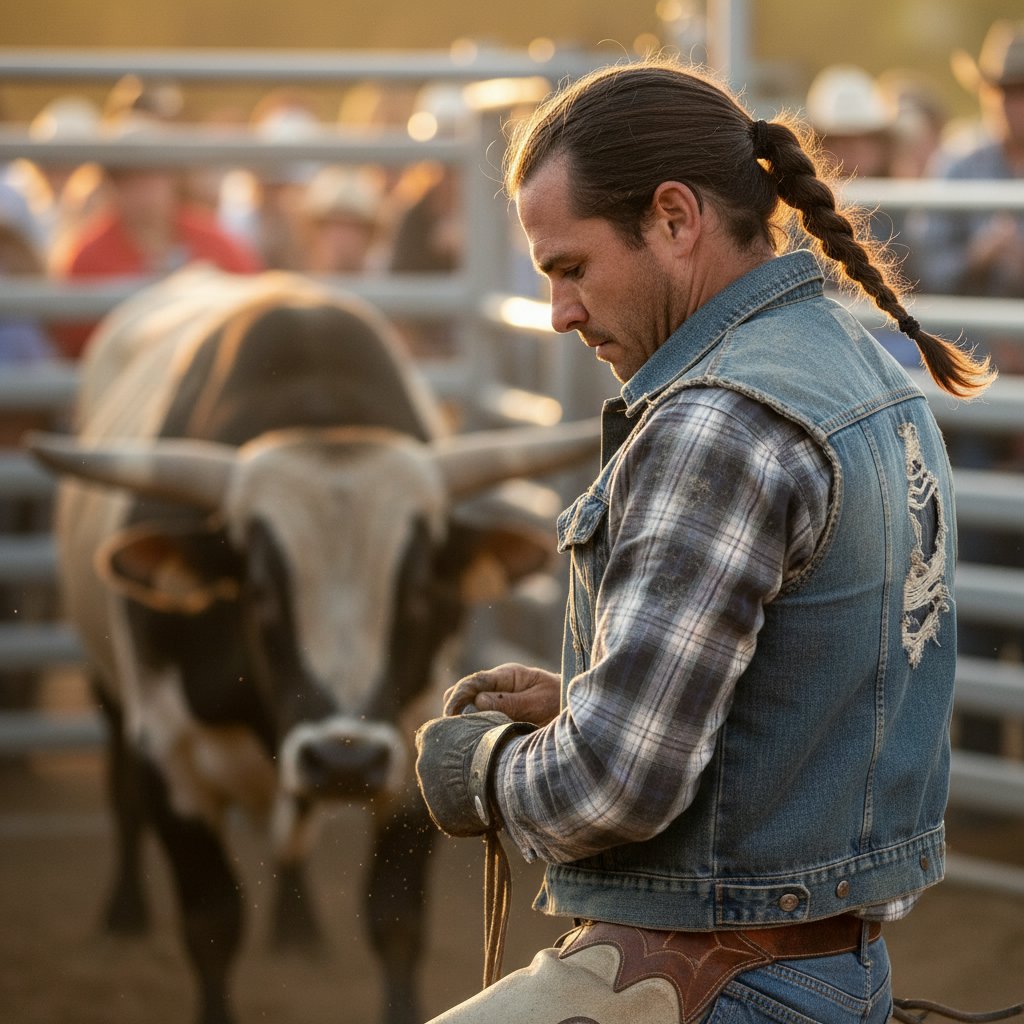Braids for Days: Discover Your Next Favorite Braided Hairstyle | The Ultimate 2025 Guide
From Ancient Artistry to Modern Glamour: The Enduring Appeal of Braids
Braids are more than just a hairstyle; they are a timeless art form, a cultural statement, and a practical solution for hair management. With roots stretching back thousands of years across various cultures, from Africa to Europe and Asia, braided hairstyles have consistently evolved while retaining their fundamental appeal. They represent strength, community, and intricate beauty. Today, braids are celebrated on runways, red carpets, and in everyday life, showcasing their incredible versatility and adaptability to any personal style, hair type, or occasion. Whether you're seeking a low-maintenance protective style, an elegant updo for a special event, or an edgy look to express your personality, there is a perfect braided hairstyle waiting for you.
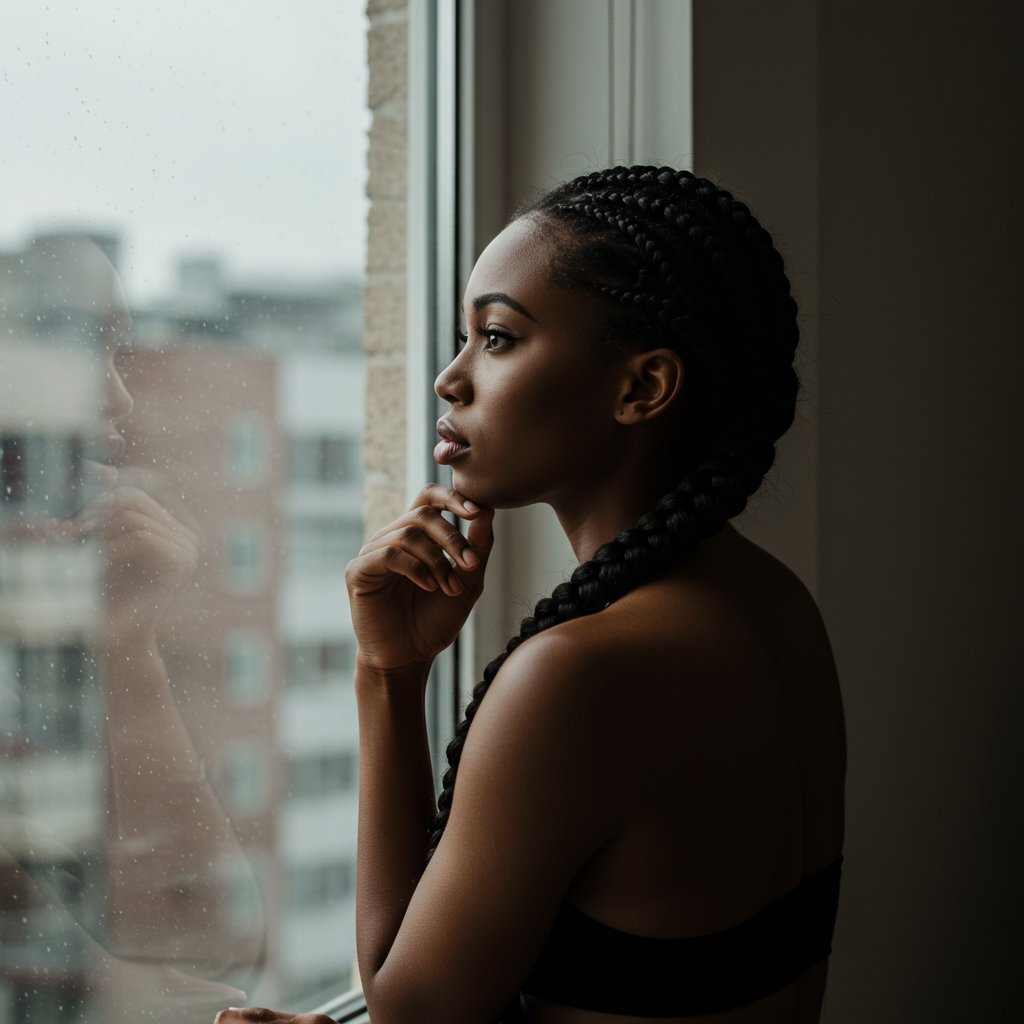
This comprehensive guide will take you on a journey through the diverse world of braids. We'll explore everything from the foundational techniques of classic three-strand and French braids to the intricate patterns of cornrows and the modern chic of knotless box braids. You'll learn about the unique characteristics of each style, the hair types they suit best, and how to care for them to ensure your hair remains healthy and vibrant. Get ready to be inspired and discover the perfect braided hairstyle that not only looks stunning but also fits seamlessly into your lifestyle.
The Classics Endure: Mastering French, Dutch, and Fishtail Braids
Before diving into more complex styles, it's essential to appreciate the foundational braids that form the basis of countless other creations. These classic techniques are versatile enough to be worn simply on their own or incorporated into more elaborate updos. Understanding the difference between them is the first step to becoming a braiding connoisseur. Each style offers a unique texture and finish, making them suitable for a wide range of looks, from casual and bohemian to polished and sophisticated.
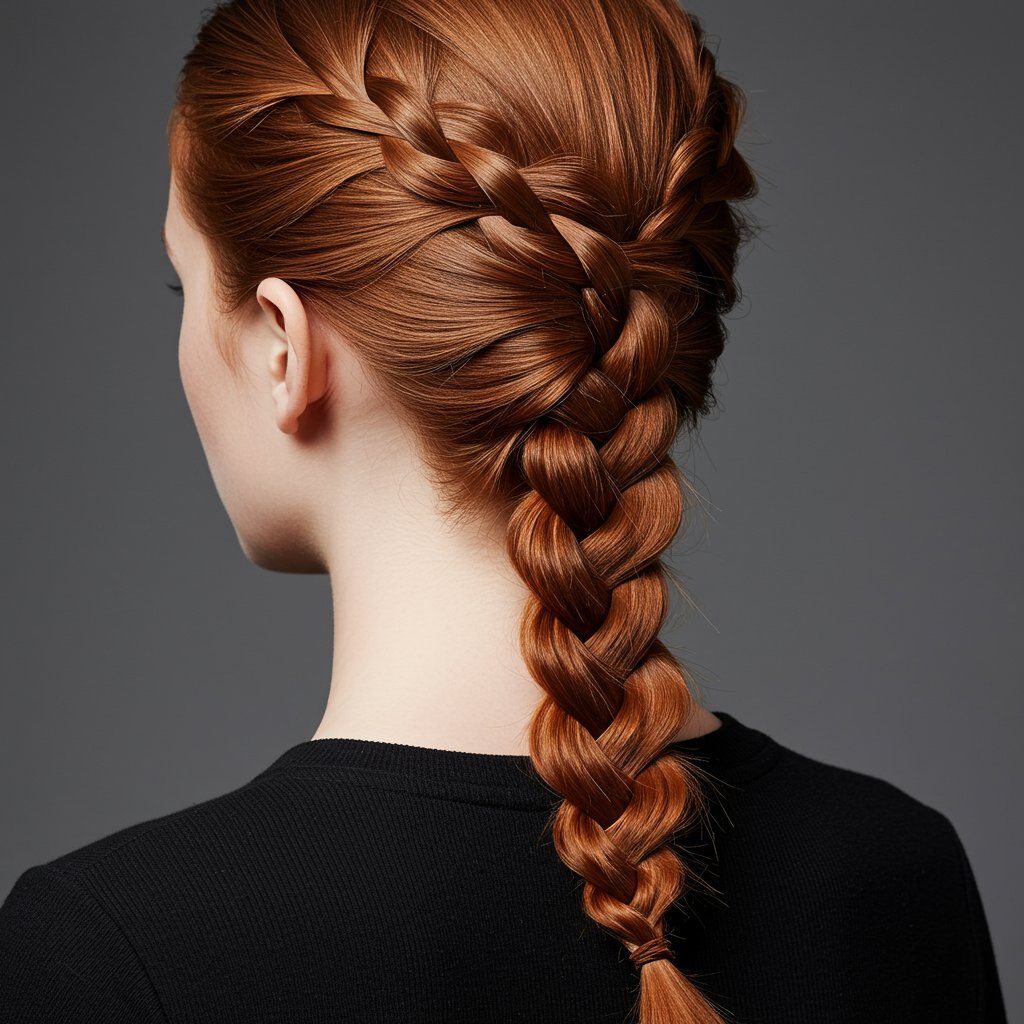
The French Braid: Timeless Elegance
The French braid is the epitome of classic elegance. This technique involves weaving three sections of hair together, gradually adding new hair from the sides into each section as you work your way down. The result is a smooth, seamless braid that lies flat against the head, creating a polished and tidy appearance. It's a go-to style for everything from a professional office setting to an athletic activity, as it keeps hair securely and neatly pulled back. The French braid can be done as a single plait down the back of the head, as double braids for a more youthful look, or as an accent to a ponytail or bun.The Dutch Braid: Bold and Dimensional
Often called the 'reverse French braid,' the Dutch braid uses the same fundamental principle of adding hair as you go, but with one crucial difference: you cross the strands under the middle section instead of over. This simple change completely transforms the look, causing the braid to sit on top of the hair rather than being integrated into it. The result is a prominent, three-dimensional plait that makes a bold statement. Dutch braids are perfect for creating a more voluminous, impactful look and are often used to form the base of stunning crown braids or edgy mohawk-inspired styles.The Fishtail Braid: Intricate and Bohemian
The fishtail braid appears complex and intricate but is surprisingly simple, involving only two sections of hair. To create it, you divide the hair into two large sections. Then, you take a small piece from the outside of one section and cross it over to the inside of the other, repeating this process on alternating sides. This creates a beautiful, interlocking pattern that resembles a fish's skeleton. Fishtail braids have a distinctly bohemian, romantic feel and look especially stunning when pulled apart slightly for a softer, 'undone' texture. They are perfect for festivals, beach outings, or any occasion where you want a relaxed yet stylish look.Protective Styling Powerhouses: Box Braids and Knotless Braids
For those looking to protect their natural hair from daily manipulation, environmental stressors, and breakage, protective styles are a game-changer. Among the most popular and effective are box braids and their modern counterpart, knotless braids. These styles involve adding synthetic or human hair extensions for length, volume, and color, allowing your natural hair to rest and grow. While they serve a similar purpose, their installation method and resulting look have key differences that cater to different needs and preferences.
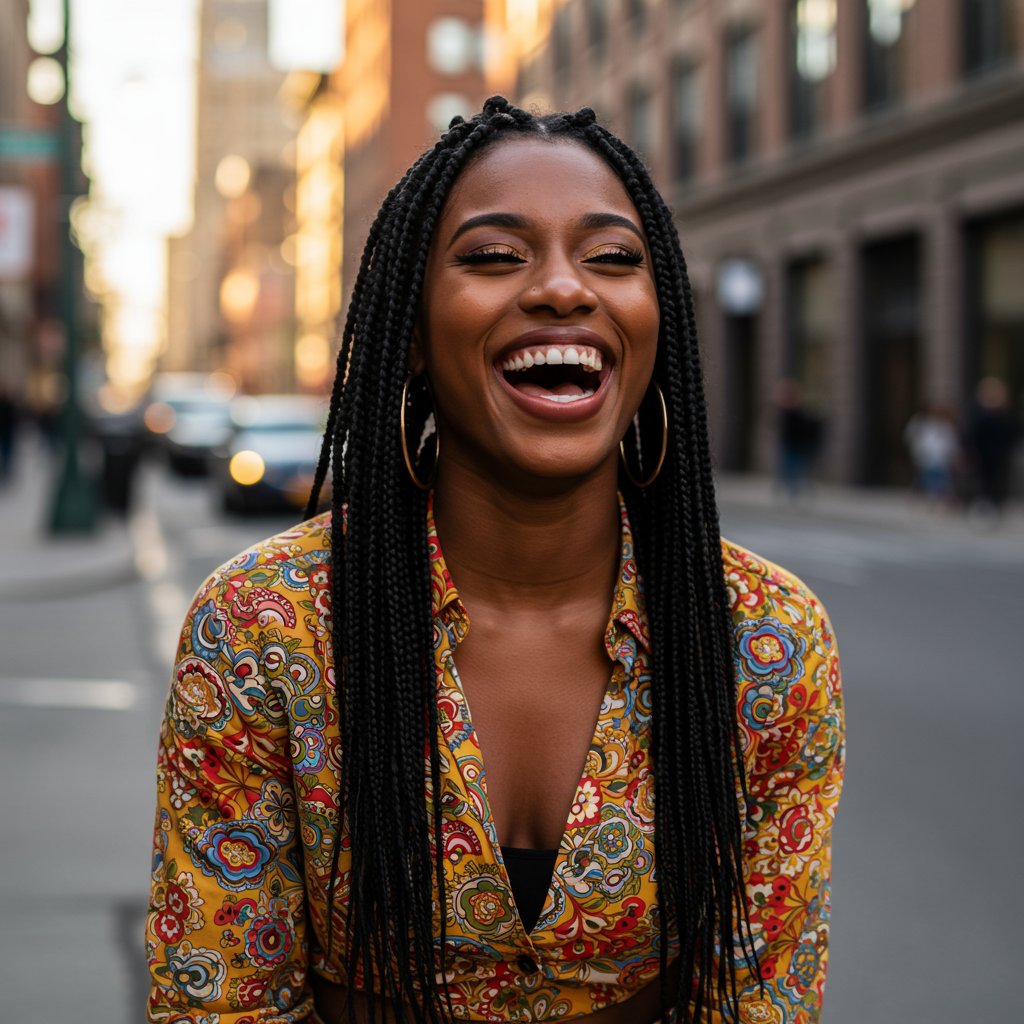
Box braids get their name from the characteristic square-shaped or 'boxy' partings at the scalp. The installation process involves creating a small knot at the base of each braid where the extension is secured to the natural hair. This technique has been a cultural staple for generations, celebrated for its durability and bold aesthetic. Box braids can be styled in countless ways—worn long and flowing, tied up in a high ponytail or bun, or adorned with accessories. They offer excellent protection and can last for several weeks with proper care, making them a practical and stylish choice.
The evolution of braiding techniques has led to the rise of knotless braids, which offer a more modern and scalp-friendly alternative. Instead of starting with a knot, the stylist begins by braiding the client's natural hair and then gradually feeds in small pieces of the extension hair. This 'feed-in' method eliminates the tension-heavy knot at the root, resulting in a braid that lies flat against the scalp from the very beginning. This makes them significantly more lightweight, flexible, and comfortable, reducing the risk of traction alopecia. The seamless transition from natural hair to extension also provides a more natural and subtle appearance.
Intricate and Cultural: The Artistry of Cornrows and Fulani Braids
Braided hairstyles are deeply woven into the fabric of Black history and culture, serving as powerful symbols of identity, heritage, and artistry. Cornrows and Fulani braids are two exemplary styles that carry profound historical significance while remaining at the forefront of modern hair fashion. These styles are not just about aesthetics; they are a celebration of intricate craftsmanship and a connection to ancestral roots. Their patterns can tell stories, signify status, or simply showcase the incredible skill of the braider.
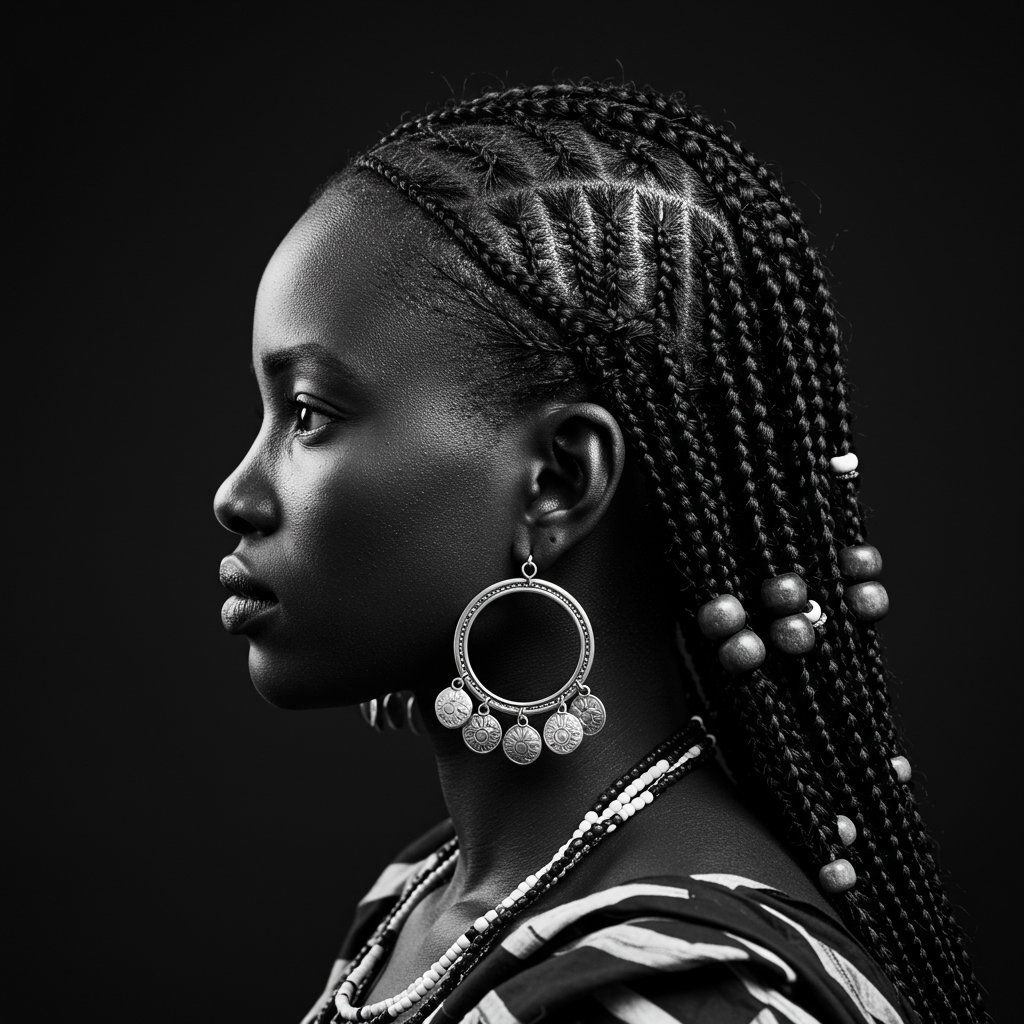
Cornrows are a traditional African style of hair grooming where the hair is braided very close to the scalp, using an underhand, upward motion to make a continuous, raised row. The name itself is derived from their resemblance to the neat rows of corn in a field. The beauty of cornrows lies in their versatility; the patterns can be simple and linear or incredibly complex and geometric, forming elaborate designs that are a true work of art. They can be worn by people of all ages and genders and can be created using just natural hair or with extensions for added length and thickness. Cornrows are a foundational style that is both a protective option and a canvas for creative expression.
Fulani braids, also known as Fula braids or feed-in braids with beads, originate from the Fula people of West Africa. This distinctive style has several signature elements: a central cornrow braided down the middle of the head, often adorned with a family heirloom or ornament; one or two cornrows braided from back to front towards the temples; and braids decorated with beads, shells, or metal cuffs. The combination of these elements creates a unique and instantly recognizable look that is rich in cultural heritage. Today, Fulani braids are celebrated globally for their striking beauty and have been famously worn by celebrities, bringing this traditional art form to a wider audience.
Ethereal and Romantic: Crown Braids and Waterfall Braids
When the occasion calls for a touch of romance and whimsy, certain braided hairstyles stand out for their soft, ethereal quality. Crown braids and waterfall braids are perfect examples of how braiding can be used to create elegant, almost fairy-tale-like looks. These styles are incredibly popular for weddings, proms, and other formal events, as they function as a natural, built-in accessory, framing the face and adding a sophisticated touch without the need for additional hairpieces. They transform simple hair into a breathtaking updo or a flowing masterpiece.
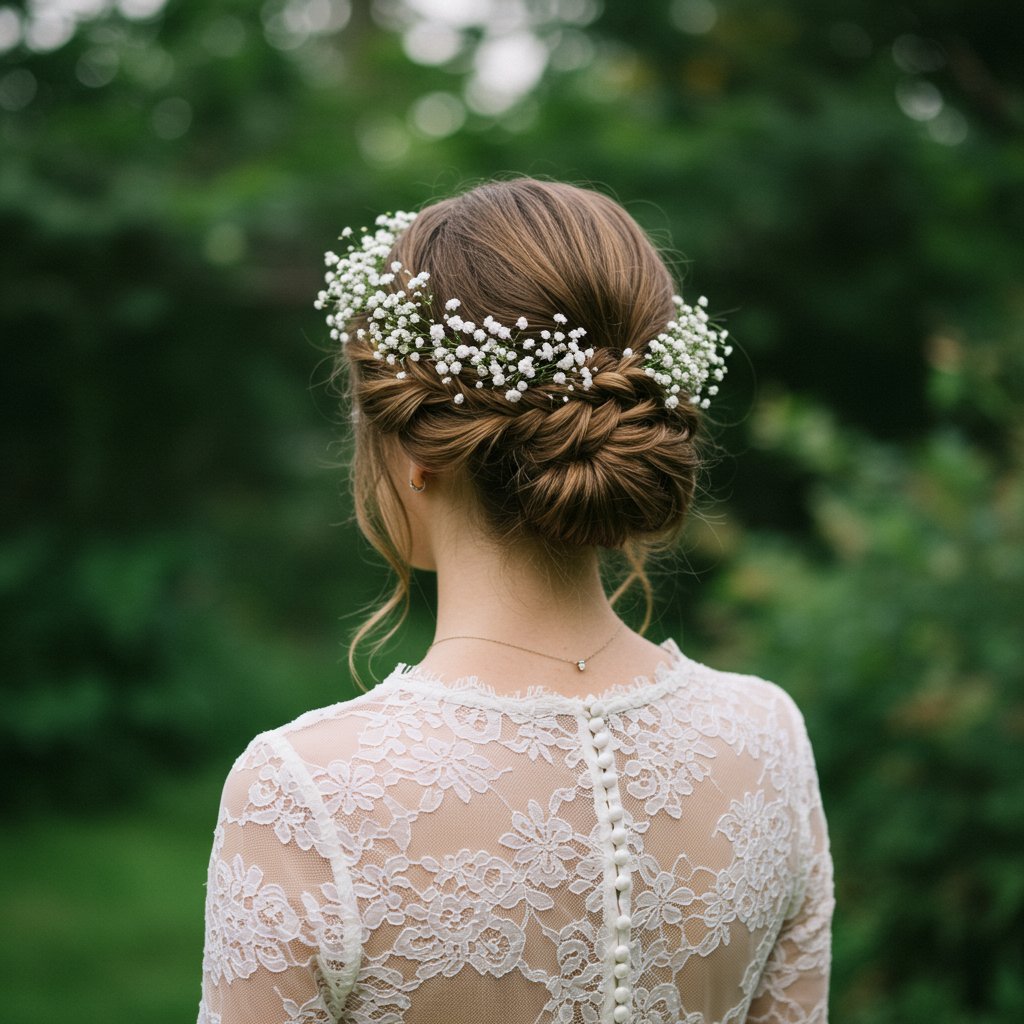
A crown braid is exactly what it sounds like: a braid (or braids) wrapped around the head to form a beautiful halo or crown. This style can be created in several ways, most commonly by making two long Dutch or French braids and then pinning them up and over the top of the head. The effect is regal and timeless. For a softer, more bohemian vibe, the braid can be loosened and 'pancaked' (gently pulled apart) to create more volume and a less structured feel. A crown braid is a complete hairstyle in itself, elegantly sweeping all the hair up and away from the face and neck, making it both beautiful and practical for a long day of celebration.
The waterfall braid is a stunning variation of the French braid that creates a cascading effect of flowing hair. The technique involves braiding along the side of the head and, with each new section added from the top, dropping the previous bottom section to let it hang free. This creates a beautiful woven pattern across the hair with strands 'falling' through it like a waterfall. It’s a half-up, half-down style that offers the best of both worlds: the elegance of a braid and the beauty of loose, flowing locks. This delicate and romantic hairstyle is perfect for showcasing long hair and adds a touch of intricate detail to an otherwise simple look.
Modern and Edgy: Faux Locs and Passion Twists
The world of braiding is constantly evolving, with new techniques and styles emerging that push creative boundaries. For those who love the look of locs or want a textured, bohemian style with a modern twist, faux locs and passion twists are fantastic options. These styles use extensions to create the appearance of locs or two-strand twists, offering a long-term protective style without the permanent commitment of locking one's natural hair. They provide a unique texture and a bold, fashion-forward statement.
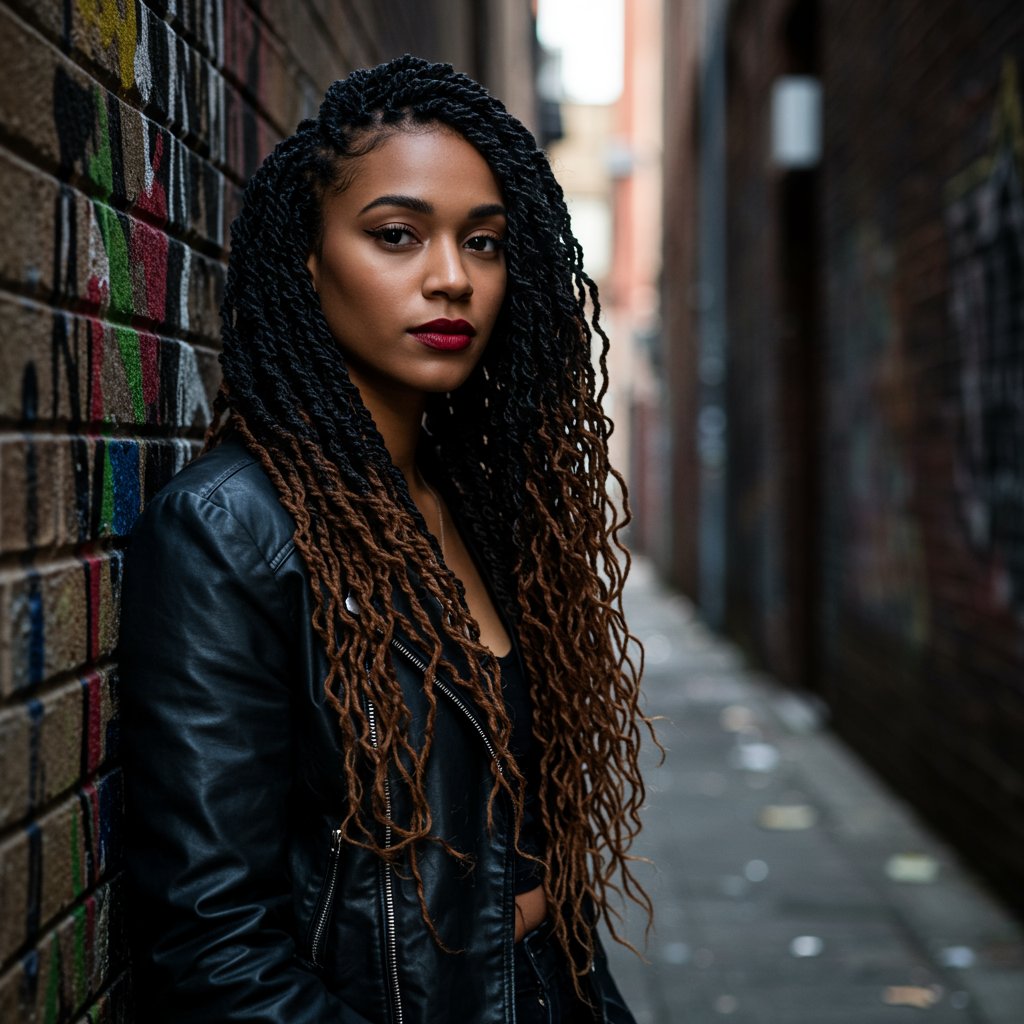
Faux locs are a temporary protective style where extension hair is wrapped around braided sections of your natural hair to create the appearance of dreadlocks. There are various methods, including the traditional wrap method and the crochet method, which involves installing pre-made locs. Faux locs can be customized in terms of length, thickness, and color, and can even be styled with a crinkled, 'goddess' finish by leaving the ends curly and undone. This style allows you to experiment with the aesthetic of locs while keeping your natural hair safely tucked away and protected.
Passion twists are a newer, highly popular style that combines the texture of Senegalese twists with the bohemian feel of goddess locs. Created using Freetress Water Wave braiding hair, this style results in silky, curly two-strand twists that are incredibly lightweight and full of movement. The key to passion twists is the installation technique, which involves twisting the hair loosely to maintain the curly texture of the extensions. The final look is a stunning, effortlessly chic style that is perfect for vacations or anyone wanting a beautiful, low-maintenance protective option with a soft and romantic finish.
Accessorizing Your Braids: Elevate Your Look
Once your braids are installed, the creative fun doesn't have to stop. Accessorizing is a fantastic way to personalize your braided hairstyle, add a pop of color, or elevate your look for a special occasion. The right accessories can transform a simple style into a unique work of art that reflects your personality. From traditional beads to modern metallic cuffs, the options are virtually endless, allowing you to switch up your look without having to change your braids.
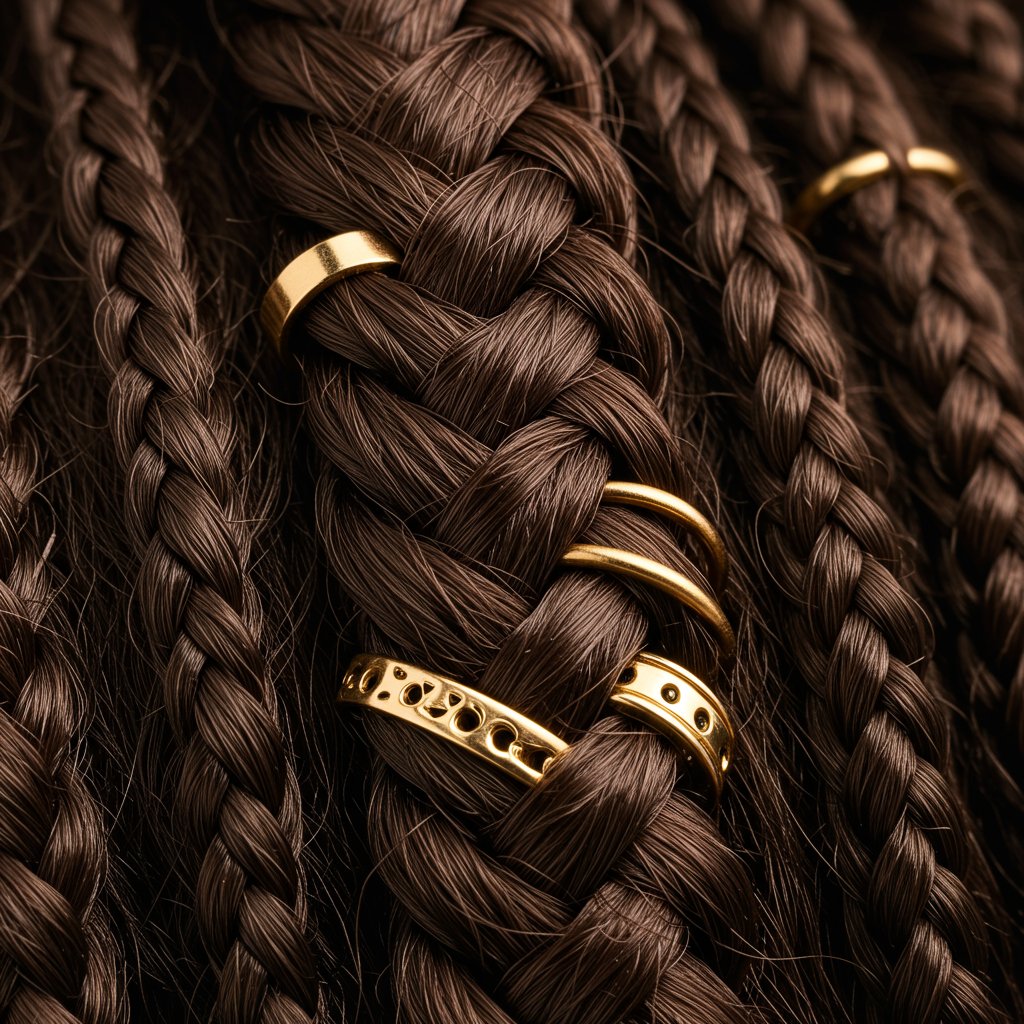
One of the most classic ways to adorn braids is with beads. Wooden, glass, or plastic beads can be added to the ends of box braids, cornrows, or Fulani braids for a touch of color and movement. This is a beautiful nod to the African origins of many braided styles. For a more modern and chic look, metallic accessories are incredibly popular. Gold or silver cuffs, rings, and coils can be strategically placed throughout your braids to catch the light and add a touch of glamour. These are easy to apply and remove, making them perfect for a temporary style upgrade.
Don't overlook the power of fabric and string. Weaving colorful string or yarn into your braids can create a stunning, intricate pattern and is a great way to incorporate your favorite colors. For a more bohemian or elegant look, consider using silk or satin scarves. A beautifully patterned scarf can be tied around the base of a braided ponytail, used as a headband to push back cornrows, or even woven into a large braid for a dramatic effect. These accessories not only add visual interest but can also provide an extra layer of protection for your hair.
Maintaining Your Braided Hairstyle for Longevity and Health
A beautiful braided hairstyle is an investment of both time and money, so proper maintenance is key to making it last and, more importantly, to keeping your natural hair healthy underneath. A consistent care routine will prevent product buildup, keep your scalp clean and moisturized, reduce frizz, and help you get the most wear out of your style without causing damage to your hair follicles.
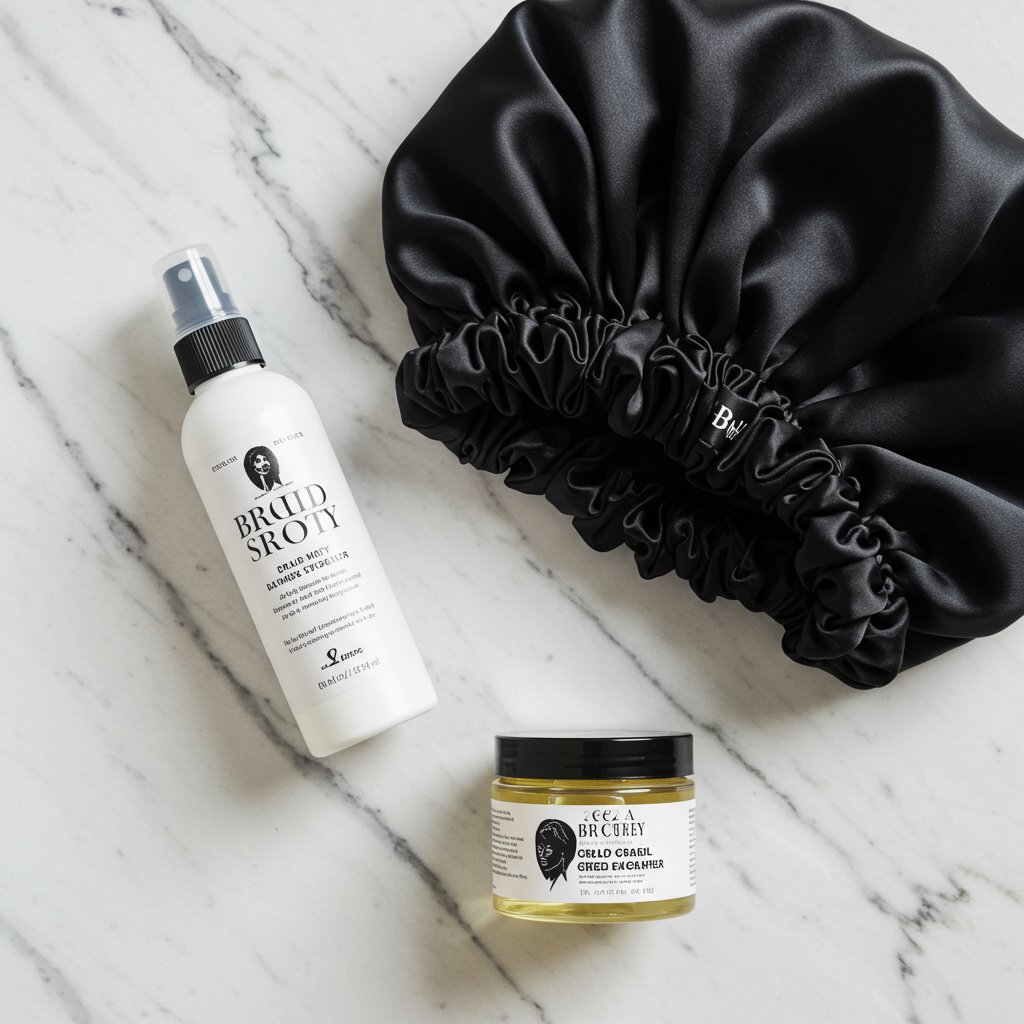
First, scalp care is paramount. A clean and moisturized scalp is the foundation of healthy hair. While you can't wash your braids with traditional shampoo as frequently as loose hair, you can still cleanse your scalp. Use a diluted sulfate-free shampoo in a spray bottle to target your scalp, gently massaging with the pads of your fingers (not your nails). Rinse thoroughly and ensure the braids are completely dry to prevent mildew. Between washes, use a light oil like jojoba or coconut oil, or a specialized scalp spray, to keep your scalp from getting dry and itchy.
Protecting your braids at night is non-negotiable. Friction against cotton pillowcases can cause frizz, dryness, and even breakage over time. Invest in a large satin or silk scarf or bonnet to wrap your hair in before bed. This will keep your braids smooth and neat, reduce frizz, and help retain moisture. For very long braids, you can gather them into a loose high bun or ponytail on top of your head before covering them. Finally, listen to your hair. Most protective styles should not be worn for more than 6-8 weeks. Leaving them in for too long can lead to matting, buildup, and tension on your hairline. When you notice significant new growth or your braids start to feel heavy, it's time to have them professionally taken down.
Frequently Asked Questions About Braided Hairstyles
Can braids damage your hair?
Braids themselves are not damaging; in fact, they are excellent protective styles. Damage typically occurs if the braids are installed too tightly, putting excessive tension on the hair follicles, which can lead to traction alopecia. Damage can also happen if they are left in for too long or if the natural hair isn't properly moisturized. Always communicate with your stylist if you feel any pain or pulling during installation, and follow a proper maintenance routine.How should I prepare my hair for a braided hairstyle?
Proper preparation is crucial for the health of your hair and the longevity of the style. Before your appointment, your hair should be thoroughly washed, deep-conditioned, and detangled. This creates a clean, moisturized, and manageable canvas for the stylist to work with. It's also recommended to get a trim to remove any split ends, which can prevent further damage while your hair is braided.How long do different types of braids last?
Longevity depends on the type of braid, your hair type, and your maintenance routine. Generally, smaller braids like micro braids or small box braids can last up to 8 weeks. Medium to large box braids and twists typically last 4 to 6 weeks. Cornrows without extensions may last about a week, while those with extensions can last 3 to 5 weeks. It's important not to exceed these timeframes to protect your hair's health.How do I wash my hair with braids in?
Focus on the scalp. Dilute a sulfate-free shampoo with water in a spray bottle and apply it directly to your scalp. Gently massage with your fingertips to lift dirt and oil. Rinse thoroughly by letting water run through your hair. Avoid vigorous scrubbing of the braids themselves. After washing, gently squeeze out excess water with a towel—do not rub. It's critical to let your braids dry completely, either by air-drying or using a hooded dryer on a low setting, to prevent mold or mildew.What's the difference between box braids and knotless braids?
The main difference is the installation method. Traditional box braids start with a small knot at the base where the extension hair is secured. This creates the classic 'boxy' part. Knotless braids use a feed-in method, where the stylist starts braiding with your natural hair and gradually adds in the extension. This results in a flatter, more seamless look that puts less tension on the scalp.Can I get braids if I have fine or thin hair?
Yes, but it's important to choose the right style. Opt for lighter, less dense styles like knotless braids over heavy, traditional box braids. Avoid extremely long or large braids that can weigh down your hair and stress your follicles. Communicating with an experienced stylist is key; they can recommend a size and length that won't compromise the health of your fine hair.Embrace the Braid: Your Next Style Awaits
From the simple elegance of a French plait to the intricate, cultural statement of Fulani braids, the world of braided hairstyles is rich with history, creativity, and personal expression. We've journeyed through the classics, explored powerful protective styles, and admired the romantic and edgy innovations that keep this ancient art form fresh and exciting. Braids offer a unique combination of beauty and practicality, providing a canvas for artistry while protecting your natural hair and simplifying your daily routine.
Choosing your next braided hairstyle is an exciting opportunity to reflect your personality and lifestyle. Whether you're drawn to the bold geometry of cornrows, the bohemian charm of a fishtail, or the lightweight comfort of knotless braids, there is a perfect match for you. Remember that the foundation of any great braided style is healthy hair, so preparation and maintenance are just as important as the installation itself. To ensure the best results and protect the integrity of your hair, always seek out an experienced, professional stylist who can bring your vision to life safely and beautifully. It's time to embrace the braid and discover the confidence that comes with a stunning, expertly crafted hairstyle.
